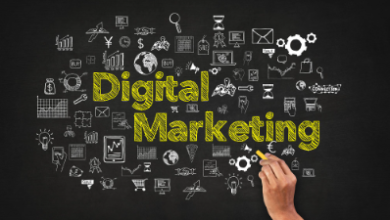Elevate Your Brand: The Power of Experiential Marketing Services

In the ever-evolving landscape of advertising and brand promotion, businesses are constantly seeking innovative ways to connect with their audiences. Traditional marketing strategies, while still relevant, are being augmented with more dynamic and interactive approaches. One such strategy that has gained significant traction is experiential marketing. As opposed to simply presenting a product or service to the target audience, experiential marketing services focus on creating immersive experiences that can forge deep emotional connections and leave lasting impressions on consumers. This article delves into the concept of experiential marketing and how it can elevate a brand.
Understanding Experiential Marketing
Experiential marketing, also known as engagement marketing, is a strategy that directly engages consumers by inviting and encouraging them to participate in the evolution of a brand. Such marketing campaigns are designed to allow potential customers to experience a brand firsthand, often in a creative and interactive setting. The key objective of this technique is to create a memorable impact, turning the audience into active participants rather than passive receivers of the message.
The Significance of Human Connection
The power of human connection cannot be overstated when it comes to marketing. Experiential events allow for face-to-face interaction, which can help build trust and loyalty towards a brand. When consumers are actively involved in an experience, they are more likely to form emotional bonds and share their experiences with others, potentially extending the reach of a brand’s message through word-of-mouth.
Personalisation and Customisation
A distinct advantage of experiential marketing is the ability to tailor experiences to meet the interests and preferences of a target demographic. In a world overwhelmed with generic advertising, personalised campaigns can help a brand stand out. Customisation shows that a company values its audience’s individuality, increasing the likelihood of engagement and conversion.
Integrated Multisensory Experiences
Experiential marketing often leverages multiple senses to create a more comprehensive and thus more memorable experience. Events may include visual displays, tastings, interactive installations, or tactile activities, engaging consumers on several levels and making the brand’s presence much more pronounced.
Measuring Impact
One of the challenges with experiential marketing is measuring its success. However, through the use of social media engagement, surveys, and data analytics, brands can gauge consumer reactions and the overall effectiveness of their campaigns. This data can be invaluable for refining future marketing efforts.
Experiential Marketing in the Digital Age
With the proliferation of digital technologies, experiential marketing is not confined to physical spaces. Virtual and augmented reality experiences have opened new avenues for brands to connect with consumers, who can now engage with products or services in a virtual space from anywhere in the world.
Experiential Marketing: A Brand Elevation Tool
Experiential marketing serves as a tool for elevating a brand in several ways. By creating unforgettable experiences, a brand can distinguish itself in a crowded marketplace. The interactive nature of experiential marketing also allows for more impactful storytelling, helping a brand articulate its values and ethos more effectively.
Building Brand Advocates
Through immersive experiences, consumers often become brand advocates. They are likely to share their experiences on social media, effectively amplifying the reach of the campaign. This peer-to-peer recommendation mechanism can be more influential than traditional advertising.
Choosing the Right Experiential Marketing Services
Selecting the right agency to provide experiential marketing services is crucial. A reputable agency that understands the intricacies of a brand and its audience can design experiences that resonate and inspire. The right partner will not only conceive creative concepts but also flawlessly execute them, ensuring each campaign achieves its objectives.
Innovation and Creativity
Innovation and creativity are vital components of any successful experiential marketing campaign. The agency chosen should demonstrate a capacity for fresh, innovative thinking and the ability to realise unique ideas that capture the essence of a brand.
Scalability and Flexibility
The capability to scale and tailor an experience to various audience sizes and demographics is another essential consideration. An adaptable approach ensures that the marketing efforts can grow with the brand and its evolving objectives.
Measurable Results
Finally, a focus on generating measurable results is imperative. A skilled agency will have methods in place to track the impact of their experiential marketing campaigns, providing valuable insights for future planning and continued refinement of marketing strategies.
Conclusion
Implementing effective experiential marketing services can take a brand to the next level, engaging consumers in a manner that traditional marketing cannot match. By fostering hands-on, authentic experiences, businesses can build meaningful relationships with their audiences and turn passive consumers into active brand advocates. The right experiential marketing campaign crafts a narrative around a brand, building a connection that can propel the brand forward in an increasingly competitive market. In the end, the resonance of an experiential campaign isn’t just about a one-time event; it’s about creating a legacy of engagement that sustains a brand for the long term.



